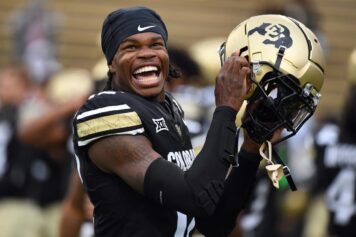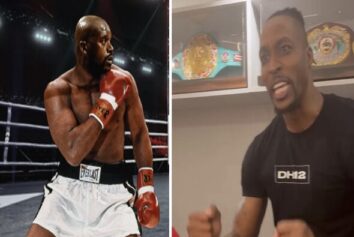In the early 90s, Tyrin Turner became the Lenny Cooke of black cinema. Folks remember Cooke right? Oh, you don't? Well, I guess that's the point. At the height of the NBA's preps to pros phenomenom, Cooke was one of the most heralded prospects to arrive on the prep hoops scene. Cooke was a legend before he'd even finished algebra. Unfortunately, Cooke flamed out quicker than a falling star and was erased from the mainstream hoops lexicon by a young high school phenom named LeBron James. Cooke's story is a sad tale of potential unfulfilled.
Turner, who played the lead character in Allen Hughe's 1993 hood classic Menace II Society has a similar parable. After his breakout role as Caine, Turner was expected to embark on a long, prosperous acting career and usher in a new era for black performers. Instead, the destiny that was reserved for Turner was filled by Menace co-stars Jada Pinkett Smith, Larenz Tate and contemporaries like Cuba Gooding Jr., Morris Chestnut and Nia Long.
Turner now occupies a spot in film ignomony as a frustrated star who sought to avoid getting typecast, took poor advice, thus failed to capitalize on his opportunities and potential. Today, Turner is attempting to kickstart his career with the help of close friend Jamie Foxx and Grantland's Thomas Golianopoulos profiled his return to prominence.
Via Grantland:
After Menace II Society, his agent Chuck James pushed for mainstream gigs. He was up for the role of Robin in Joel Schumacher's Batman Forever, but lost out to Chris O'Donnell. Roles like that came up, but never came through. He could never lock down that crucial next role. The best he and James could book was a four-episode run on Chicago Hope. It didn't help that Turner hated to audition.
"I think he was naive to the process," James says. "He became famous very quickly from [Menace], and so it's like, 'There's supposed to be an offer. I don't want to have to go read on that,' or, 'I don't want to read on that. I'm going to be offered it.' He thought everything would be offered to him and that he was a star now and he didn't have to work for it. Unfortunately, it still took work to get him parts."
Then, Turner tried to pivot. After he shot a cameo in the video for rapper Scarface's 1997 hit "Mary Jane," an idea struck. So many rappers had crossed over into acting; why not pull a reverse and try rapping? He signed with the historic Houston-based independent label Rap-A-Lot for "50 or 75 thousand" dollars.
Still, Turner's rapping on the Geto Boys' "Dawn 2 Dusk" and Scarface's "Menace Niggas Never Die" was nothing like his acting. It was artificial, inauthentic, and rhythmless. His voice was too chirpy and his delivery stilted. Caine sounds as if he's reading someone else's words from a sheet of paper. He never gained a foothold with rap fans, and the album was soon shelved. By the time Turner returned to Los Angeles, his agent James had dropped him.



